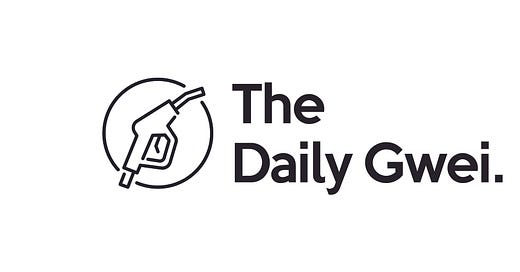Yearn founder Andre Cronje posted an article to his Medium blog yesterday titled ‘Building in DeFi Sucks (part 2)’ and it got a lot of people talking. One response thread that got a lot of attention was Uniswap’s growth lead Ashleigh Schap’s as she posted one particular tweet that labelled SushiSwap a “stolen dapp”. Of course, this caused a lot of drama in the community.

There seems to be a schism developing in the Ethereum community since the launch of SushiSwap as it is directly competing with one of the Ethereum communities darling projects. The center of the debate really just stems from one question: did SushiSwap commit “theft” by forking Uniswap? Well, I think the answer is obviously no because the code for Uniswap is open source and not under any copyright restrictions - literally anyone is able to fork Uniswap’s code and use it as they so wish. Though, this misses the nuance behind why this question is even being posed in the first place and for that, we must take a trip down memory lane.
SushiSwap’s launch came out of no where in DeFi summer and immediately split the community because it was, at the time, a copycat project with the direct intention of “stealing” Uniswap’s liquidity. Its main claimed improvement was that it would be “community owned” and that there were no VC’s or insider token allocations. On top of this, SushiSwap also had an anonymous founder named Chef Nomi that ended up “exit scamming” the project by selling the treasuries SUSHI tokens and then giving back the proceeds a couple of days later. Chef Nomi then handed the keys to the project over to the “community” under 0xMaki’s leadership and it has remained this way ever since.
A related topic to all of the above is the emergent debate about which model is better: non-VC non-American based projects or VC backed American-based projects. There are pros and cons to both approaches - with a non-VC non-American based project or a “community-run” project, the building is usually done out in the open which means it’s also openly criticized by hundreds/thousands of people every step of the way. On the other hand, the VC-heavy projects tend to build in secret and only publish their full release once it is ready for the world to use. Obviously this approach doesn’t lend itself very well to being “community run” and it does become harder to build a dedicated community because of this.
I also believe that non-American based teams are actually at an advantage in DeFi simply because they can move faster and do tend to just ignore regulatory hurdles whereas their American-based counterparts don’t really have this luxury. Without the shackles of worrying about regulatory risks, governance in projects like SushiSwap can move faster and implement new things such as the ‘Onsen Menu’ (an innovative liquidity mining program) to incentivize usage whereas Uniswap’s governance moves slower and currently leaves much to be desired.
I think over the coming months we’re going to continue to see this battle between Uniswap and SushiSwap heat up tremendously as SushiSwap has a bunch of products in the pipeline and Uniswap has their much-hyped v3 release. At this point, it’s actually not really possible to tell who’s going to “win” this battle though I do believe that the real winner of the decentralized exchange/AMM space will be the aggregators that sit on top of all of them.
Have a great day everyone,
Anthony Sassano
Join the Daily Gwei Ecosystem
All information presented above is for educational purposes only and should not be taken as investment advice.





To me this competition between the two models is a huge sign of health. It means that both models will try to inspire from each other and will be pushed to progress either to compete to get the same thing or find their own niche.
It's also a signal to other buidlers that despite the first-mover advantage, at the end of the day every dApp built on Ethereum has equal chances of success - very much like on the Internet in the good old times.